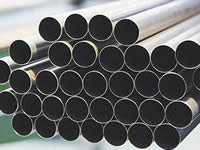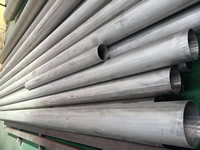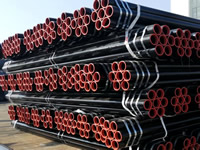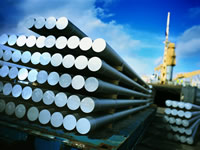Sinosteel may be about to default on its debts

Sinosteel, a major Chinese state-owned miner and steel trader, is poised to default on its bonds this week according to a letter sent to investors.
According to the Financial Times, citing a copy of the letter sent last week, Sinosteel told investors that “the company’s business has stagnated and cash flow has dried up at headquarters and a portion of subsidiary enterprises”.
It stated that a subsidiary “lacked the funds to repay principal and interest on 2 billion yuan ($315m) in bonds sold in 2010” scheduled to mature on Tuesday.
According to the Sinosteel’s website, the company “is a central enterprise under the administration of the State-Owned-Asset Supervision and Administration Commission, and one of China’s largest and most influential companies.”
It states that it is active in the development, mining, and processing of metallurgical mineral resources, trading, research and logistics. It has a global sales network and logistics system.
The prospect of a bond default from one of China’s 112 state-owned enterprises, coming at a time when concerns over the health of the Chinese economy are already heightened, may test Beijing’s resolve to allow market forces to play a greater influence in pricing market risk appropriately.
Last month Xinhua, a state-run media company, released a report stating that China’s government will modernise state-owned enterprises (SOEs), enhance state assets management, promote mixed ownership and prevent the erosion of state assets.
The news agency noted that the reforms will improve the competency of SOEs and turn them into fully independent market entities, stating that the government aims to have them fully implemented by 2020.
While the reforms, designed to make SOEs more robust, influential and have greater ability to avoid risks, aren’t expected to be fully implemented, markets will be watching events carefully to determine whether or not the government will allow such a high profile firms to default upon its obligations.
Based on recent form, it’s debatable whether it will.
Last month state-owned heavy machinery producer China National Erzhong Group narrowly averted a default on its debt obligations when its parent company said it would buy outstanding bonds from investors, according to the FT.
Going further back, Chaori Solar, the first domestic-based Chinese firm to default on its debts in March last year, saw investors subsequently bailed out when Great Wall Asset Management, a state-owned bad-loan bank, stepped in to ensure a 90 million yuan interest payment was paid to investors.
Should China’s government take a similar approach to Sinosteel’s debt obligations tomorrow, it will once again bring into question the government’s mandate of championing market-based reforms.

 +86 371 55057610
+86 371 55057610  inquiry@xsteelplate.com
inquiry@xsteelplate.com








 Tel:+86 371 55057610
Tel:+86 371 55057610  Fax: +86 371 5505 7611
Fax: +86 371 5505 7611